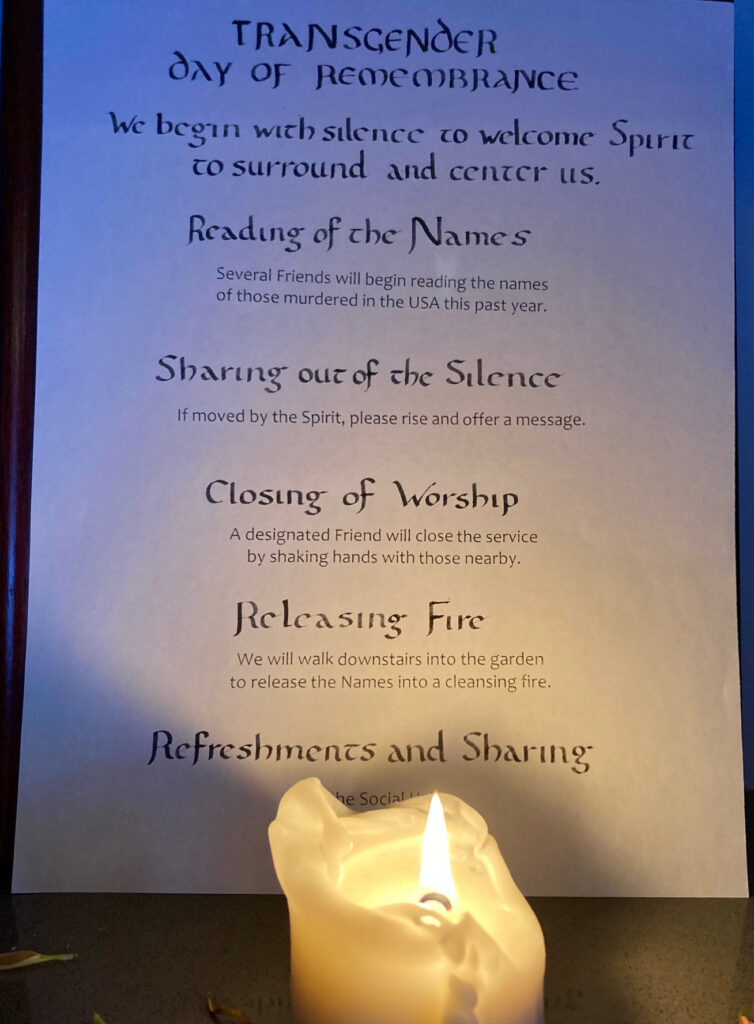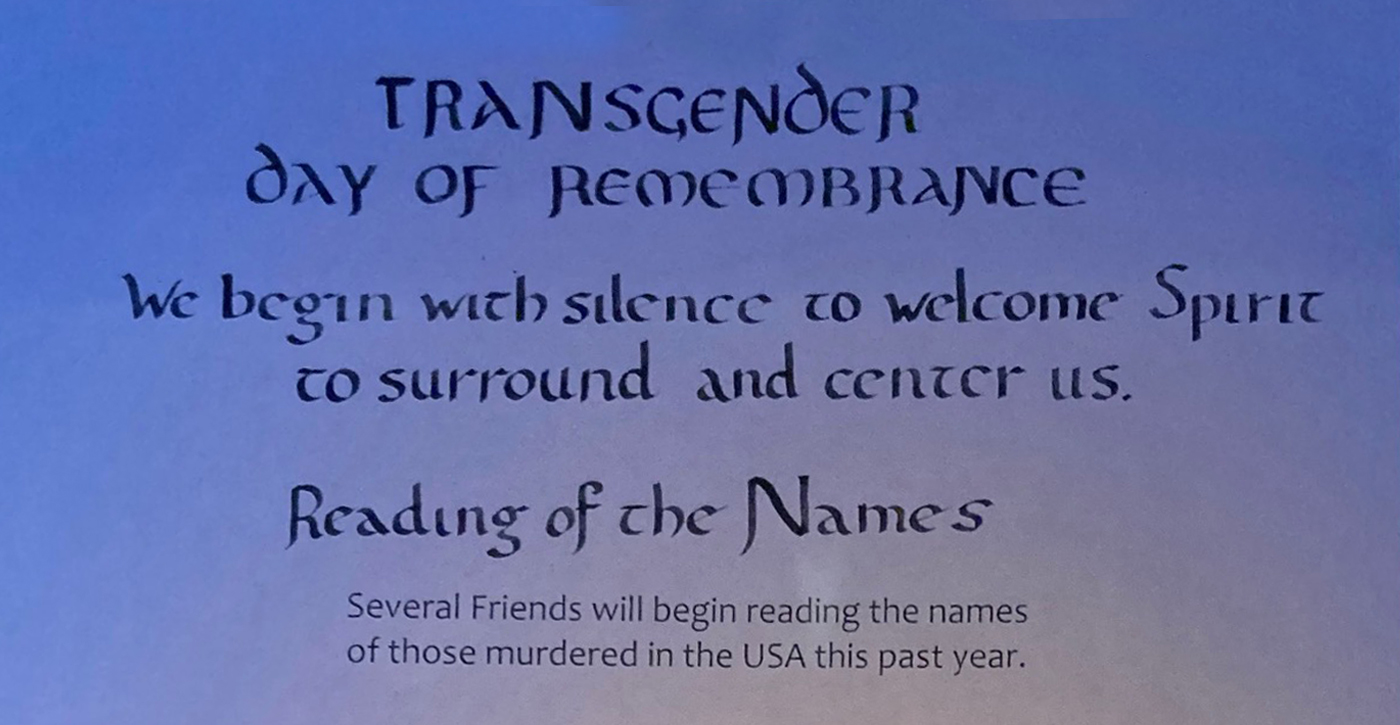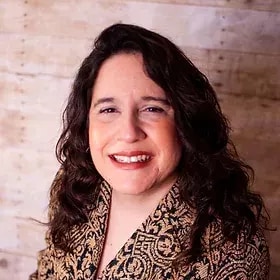The annual Transgender Day of Remembrance takes place every year on November 20. The observance traditionally involves reading the names of transgender people who have been murdered since last year’s memorial gathering. Participants seek to honor trans folks, make their lives visible, and oppose anti-trans violence.
Friends Journal talked with several Quakers about their experiences of Transgender Day of Remembrance (TDOR). Friends shared their impressions of this year’s TDOR events, which took place on Monday, November 20, as well as reflections on previous years’ observances.
Observing TDOR offers participants a chance to explore how to affirm and welcome trans folks.

“Honoring the Transgender Day of Remembrance gives us the space to sit with the places where our world, nation, and communities are not always living up to what many Quakers might hope that these entities would live up to. These events give us the opportunity to lean into that discomfort and to consider ways that Spirit might be inviting us into growth and change,” said Cai Quirk, a transgender member of Ithaca (N.Y.) Meeting.
This year, Quirk attended a TDOR observance at which a local transgender and gender-queer choir sang songs about trans joy as well as a piece about children suffering in Gaza and Israel. TDOR observances in previous years have been more focused on lives lost. Quirk’s meeting did not do anything specific this year for TDOR.
The Transgender Day of Remembrance began almost 25 years ago in 1999 with a web project and vigil to commemorate Rita Hester, a 34-year-old Black transgender woman who was stabbed to death in her Boston, Mass. apartment in November 1998.
Ellen Simmons of Multnomah Meeting in Portland, Ore., attended an interfaith service to mark the day. Cellist and singer Anna Fritz, who is also a Quaker, shared a song of transgender love at the event, which was held at First United Methodist Church in Portland. About 200 people attended the interfaith observance, including about 6 Quakers, according to Simmons. Simmons, who is the parent of a transgender daughter, serves with another meeting member on the planning committee for the interfaith observance, which started in 2018.
In previous years, Multnomah Meeting has held a meeting for worship for mourning on TDOR, and Simmons would like to return to this silent commemoration. Participants would center down in the silence, read the names of transgender folks murdered in the previous year, and speak as the Spirit led them.
“We would have a sacred fire and commend the names to the fire,” Simmons said.
In another room was a Friendly listener available to support those who were feeling upset. Holding a meeting for mourning for TDOR was preceded by a lot of work to educate the meeting community about the importance of such a gathering, according to Simmons.
Brittany Koresch, a non-binary member of North Columbus (Ohio), attended an online TDOR event convened by Broadmead (Ohio) Meeting. Koresch’s meeting did not host an event but did post a notice about Broadmead Meeting’s gathering. Koresch would have also welcomed the opportunity to participate in an observance by their own meeting.
Event participants expressed welcome and support for transgender individuals, describing them as loved and precious.
“It was nice to hear that directly and explicitly,” Koresch said.
Prayers and participation in commemorative events help transgender individuals feel cared for and supported by their meeting communities, according to Quirk.
Older trans folks can feel especially alone because they may have transitioned at a time when there was no public discussion of their experience and cisgender people often do not know how to express support, according to Chloe Schwenke, 72, a transgender woman who is a member of Adelphi (Md.) Meeting.
Schwenke used to live in South Africa and compares acknowledging the deaths of trans folks with the Truth and Reconciliation Commission that took place after the fall of apartheid in that country. Commemoration observances offer a chance “to read those people into the historical records,” Schwenke said.
Schwenke said when a meeting decides to hold an observance, it can provide transgender members and attenders with a sense of recognition.
“It makes us feel less invisible,” Schwenke said.
Correction: An earlier version of this article incorrectly numbered attendees at an interfaith service at 60. There were around 200 attendees; about 6 of them were Quakers. We have adjusted the article to reflect this.




Comments on Friendsjournal.org may be used in the Forum of the print magazine and may be edited for length and clarity.